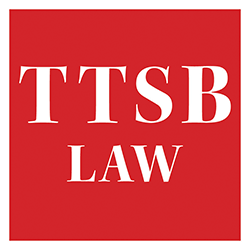Parents cannot always be with their children and sometimes must entrust them to daycare. Parents need to take the initiative to assure that their daycare provider is safe.
First, trust your instincts. If you are suspicious that the facility is not doing enough to prevent personal injury or other problems, look elsewhere for daycare. There are, however, some common safety concerns.
Supervision
There should be a caregiver-to-child ratio of at least 1 to 3 for infants and young toddlers, 1 to 6 for older toddlers and 1 to 9 for pre-school aged children. Infants and toddlers must always be in sight and young children should always be supervised. Teachers need to conduct name and face checks to assure everyone is accounted for.
Training
The daycare must have a training plan for staff. They should have training in pediatric CPR and first aid. Watch staff to assure they are following health and safety rules.
Background
Daycare centers should be state-licensed in Oklahoma. Parents can check their compliance history with government agencies.
Also, everyone who has contact with children should have extensive background checks and criminal screening. At least two adults should always be with the children.
Medications
Parents, if possible, should administer medications at home. When this is not possible, bring medications in their original container to daycare with dosage instructions.
Facilities should have written authorization from parents and directions for administering medications. Staff needs to be trained on storing, handling and administering medications. They must know how to recognize adverse reactions and act. A witness should be present when medications are administered.
Unsafe substances
Providers should keep labeled medication, cleaning products and any hazardous substances in locked and childproof containers. Food and cleaning supplies may not be kept together.
Unsafe equipment
The playground is the most common place where children are injured. Playgrounds should be clean and kept in good repair. Inspection reports need to be satisfactory.
Play areas for younger and older children should be separate and have secure gates or fences. These areas cannot have tripping and chocking hazards. Surfaces must be kept in good condition.
Equipment should be kept in good condition and inspected often. Facilities must discard any broken toys, keep track of inventory, and stay current on product recalls.
Illness
Daycare centers can be super-spreaders of germs. Parents should keep their children home when they are sick and current on immunizations.
Providers must assure that staff and children are immunized, children wash their hands often, diaper changing stations are sanitized, and that facilities, toys and equipment are washed and disinfected each day. Staff must regularly wash their hands, especially after handling food, changing diapers, and using the restroom.
Food safety
Staff members must be knowledgeable on proper handling and storage of breast milk and formula. They should be aware of any food allergies and that the right food is fed to the right child. Food needs to be served in smaller sizes to avoid choking.
All cooking surfaces, equipment and utensils should be clean. Food needs to be kept at the right temperature and cooked properly. Refrigerators and cooking appliances must be kept in good working order and have safeguards for children.
SIDS
Sudden infant death syndrome (SIDS) cases have increased at childcare facilities. Daycare, accordingly, must have safe sleep practices.
Babies need to sleep on their backs. Soft bedding should be avoided. Bumper pads, fluffy blankets and toys should not be placed in cribs.
Emergencies
Facilities must have an emergency plan addressing health-related accidents, natural disasters, fire, violence, and other emergencies.
Facilities should have fire extinguishers and smoke detectors that are regularly inspected. There should be fire and emergency procedure drills monthly, which should be recorded in a log.
Doors must be locked, and identification is required for entry. Teachers must always know the children’s location.
There should be a plan for evacuation and moving to another location. This should be provided to parents.
A weather radio and emergency supply kit should be kept.
Attorneys could assist parents with gathering evidence if their child suffered an injury and the daycare facility was negligent or did not comply with Oklahoma’s laws and regulations. Lawyers can pursue a family’s rights to compensation.

